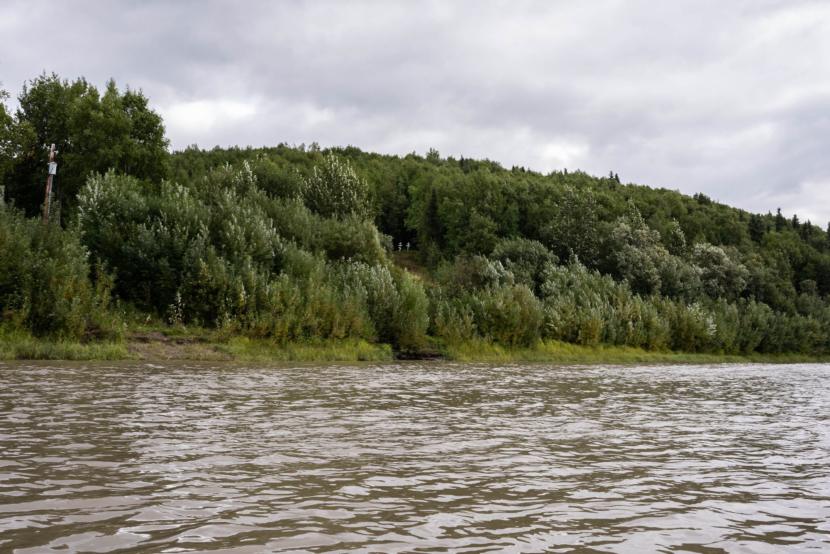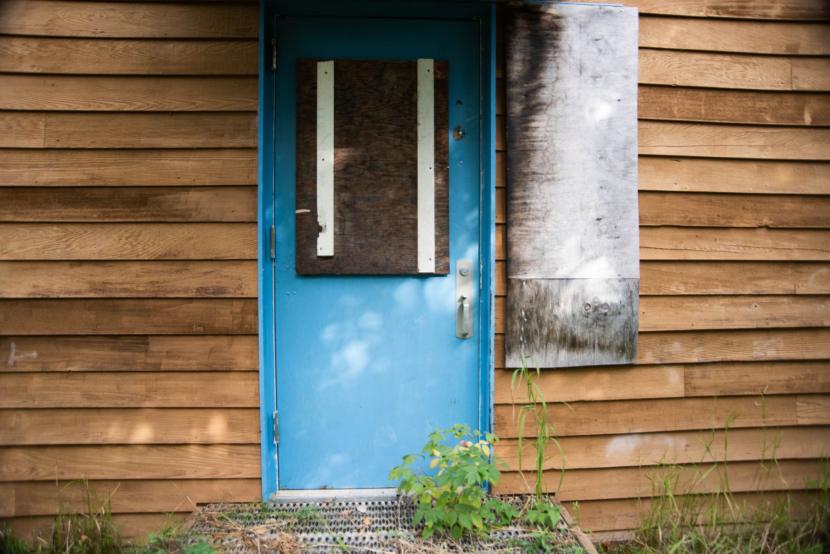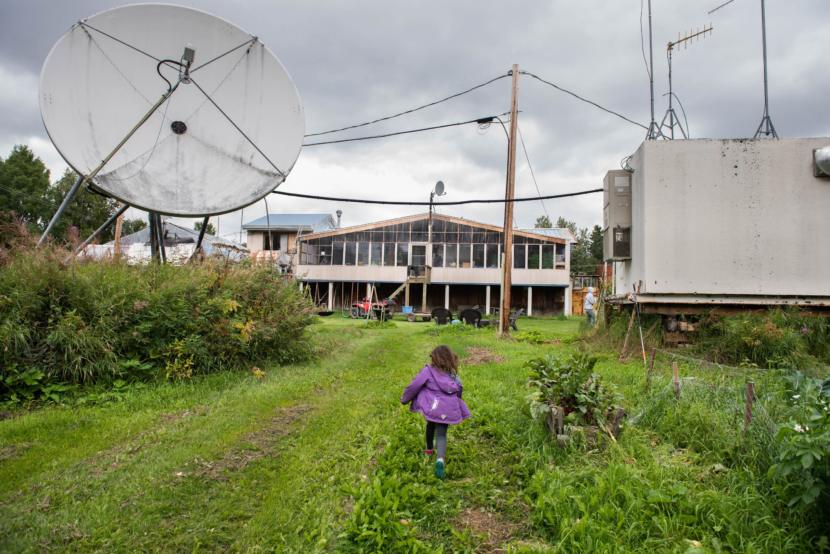This is a three-part series reported from a village of 20 people on the Upper Kuskokwim River that stands to gain the most from the proposed Donlin mine. Red Devil was built by mining almost 100 years ago, and now carries a toxic legacy of mine pollution. But to its residents, the Donlin Gold mine represents hope. Like so many communities in Alaska, resource extraction is at once a lifeline and a risk.
Red Devil, Alaska, Part III
Rebecca Wilmarth can see the empty school building across her lawn in Red Devil, Alaska. It shut down in 2009, and for a while, willows and alders shrouded it from view. Wildland firefighters recently cut them back to reveal a brown building with blue trim. For a place that’s been abandoned for ten years, it appeared in remarkably good shape.
For Wilmarth, it’s a symbol of what was lost after the Red Devil mercury mine shut down in the 1970s.
“It was like a domino effect of things that made this place so deserted. The school closed. Families had no other option but to relocate or send their kids somewhere else.” Wilmarth said.
Red Devil is a tiny town with about 20 remaining residents. A mercury mine that built the town used to operate 3 miles away. But once it shut down, people started leaving for other jobs. Now Red Devil has no health clinic and no store. It doesn’t have a tribal council or city government. A handful of residents are fighting to get basic services back.
And to do that, they need to revive Red Devil’s city government. Wilmarth is working with Glen Morgan and a few others to make it happen.
“If we get a clinic and you know get road services … (people) can stay and you know have something to look forward to,” Morgan said. His parents are buried in Red Devil, right across the Kuskokwim River where he lives.

Morgan’s niece, Leann, is 21. She wants to return to Red Devil to work as a health aide.
“If I could build a house here in Red Devil, I’d build it across the river where my grandparents are and where they used to live,” Leann said.
Red Devil has never been recognized as a municipality. But they did have a community association up until 2009 and through that, accessed state funds.
A community association is a nonprofit organization that unincorporated communities, like Red Devil, can form to apply for state funding and enter into contracts. But all that officially dissolved in 2013.
Red Devil residents held a casual community meeting over the summer and elected Glen Morgan as president, his brother Joe Morgan as vice president and Wilmarth as secretary and treasurer of a city council. They aren’t sure what comes next.

They are all pitching in on phone calls, Wilmarth says. Red Devil is too small to be recognized as a municipality — that requires 25 people for that and Red Devil has less than 20. And there aren’t enough tribal members in town to revive a tribal council. But that hasn’t stopped residents here from dreaming of building a bigger community.
“I think the Donlin Mine is a great possibility for jobs. I hope Donlin goes through; it would enable my family to stay,” Wilmarth said.
Most of the jobs for Red Devil will likely come with the proposed Donlin Gold mine. If completed, the mine would be one of the biggest in the world, just 50 miles down the river. It needs several more state permits, finish its dam safety certification and complete a feasibility study to reduce construction costs. But Donlin has said it expects to bring 800 jobs just for its mining operations.

But it’s unclear when the mine will begin operating. And Red Devil still needs a health clinic and a school.
Rebecca’s older daughter is going to school in Palmer where Rebecca’s mother lives. Rebecca talks to her every morning just before she goes to class.
“It’s hard seeing her, you know, away from me, but it’s good that she’s socializing with more people,” Wilmarth said.
And Rebecca knows she’s got a hard choice coming soon.
“(It’s) going to be a point where I will have to make a decision on homeschooling her again or relocating myself and not looking forward to that,” Wilmarth said.

Right now, residents have plans for that empty school building. If they can buy it back from the state or even lease it, they plan to open it up as a community center. It might even hold the health clinic.
Other jobs could come from tourism and fishing.
“There’s not really any too many places I think on earth that you can have you know two airplanes parked in your yard and just have a jump in your plane from your front door and take off or jump in the boat or on a snow machine and just go,” Wilmarth said.
And Red Devil residents hope to hang on to that just a little while longer.
Read and view the other parts of this series here.

